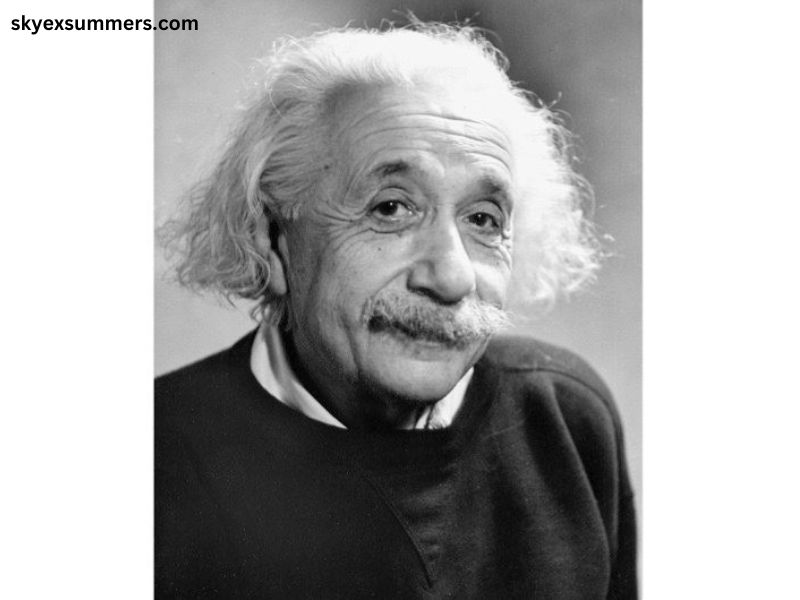Throughout human history, certain individuals have left an indelible mark on the world, shaping cultures, ideologies, and societies. Their influence has transcended their lifetimes, affecting generations to come. This article explores some of the most influential people in history, examining their contributions and the legacies they left behind.
1. Mahatma Gandhi
Mahatma Gandhi, the leader of the Indian independence movement, is celebrated for his philosophy of nonviolent resistance, known as “Satyagraha.” Born in 1869 in India, Gandhi’s methods inspired civil rights movements across the globe. His commitment to nonviolence challenged British colonial rule and galvanized millions to fight for India’s independence. Gandhi’s principles have influenced various leaders, including Martin Luther King Jr. and Nelson Mandela, highlighting the power of peaceful protest in the quest for social justice.
2. Albert Einstein
Albert Einstein revolutionized the field of physics with his theory of relativity, which changed our understanding of time, space, and energy. Born in Germany in 1879, Einstein’s work laid the foundation for modern physics, influencing technologies ranging from nuclear energy to GPS systems. Beyond his scientific contributions, Einstein was an advocate for civil rights and a humanitarian, using his platform to speak out against war and oppression. His genius not only reshaped science but also inspired a cultural movement valuing intellectual curiosity and inquiry.
3. Martin Luther King Jr.
As a key figure in the American civil rights movement, Martin Luther King Jr. played a pivotal role in advocating for racial equality through nonviolent protest. His leadership and eloquence galvanized public support for civil rights legislation in the 1960s. King’s famous “I Have a Dream” speech, delivered during the 1963 March on Washington, remains a symbol of the struggle for justice and equality. His legacy continues to inspire movements for social justice worldwide, proving that the fight for civil rights transcends national boundaries.
4. Marie Curie
Marie Curie, born in Poland in 1867, was the first woman to win a Nobel Prize and remains the only person to win Nobel Prizes in two different scientific fields: Physics and Chemistry. Her pioneering research on radioactivity laid the groundwork for advances in medical treatments, including cancer therapies. Curie’s legacy extends beyond her scientific achievements; she broke barriers for women in science and inspired future generations of female scientists. Her work not only transformed science but also challenged societal norms regarding gender roles.
5. Nelson Mandela
Nelson Mandela’s life and work epitomize the struggle against apartheid in South Africa. After spending 27 years in prison for his anti-apartheid activities, Mandela emerged as a symbol of resilience and reconciliation. Elected as South Africa’s first Black president in 1994, he focused on healing a divided nation through forgiveness and unity. Mandela’s leadership style and commitment to human rights continue to inspire global movements for justice and equality, making him a beacon of hope for oppressed communities worldwide.
6. Leonardo da Vinci
Leonardo da Vinci, a true Renaissance man, made profound contributions to art, science, and engineering. Born in 1452 in Italy, his works, such as “The Last Supper” and “Mona Lisa,” are masterpieces that continue to captivate audiences. Beyond his artistic achievements, da Vinci’s notebooks reveal innovative ideas in anatomy, flight, and engineering, laying the groundwork for future scientific advancements. His insatiable curiosity and interdisciplinary approach embody the spirit of the Renaissance, influencing countless fields of study and inspiring innovation.
7. Confucius
Confucius, an ancient Chinese philosopher, established a system of ethics and morality that has profoundly shaped East Asian cultures. Living in the 5th century BCE, his teachings on respect, family loyalty, and social harmony influenced societal structures in China and beyond. Confucianism became the backbone of Chinese civilization, impacting education, governance, and personal relationships for centuries. Confucius’s ideas about ethics and morality continue to resonate in contemporary discussions about values and social conduct.
8. William Shakespeare
William Shakespeare, often regarded as the greatest playwright in the English language, has had a lasting impact on literature and the arts. His works, including “Hamlet,” “Romeo and Juliet,” and “Macbeth,” explore timeless themes of love, ambition, and human nature. Shakespeare’s innovative use of language and character development has influenced countless writers and playwrights, shaping the trajectory of literature. His ability to capture the complexity of the human experience makes his work relevant even today.
9. Mother Teresa
Mother Teresa, born in Albania in 1910, devoted her life to serving the poorest of the poor in India. As the founder of the Missionaries of Charity, she provided care and support to those suffering from poverty, disease, and neglect. Her selfless service earned her the Nobel Peace Prize in 1979 and global recognition as a symbol of compassion and humanitarianism. Mother Teresa’s legacy reminds us of the importance of kindness and empathy in addressing social injustices.
10. Winston Churchill
Winston Churchill, the British Prime Minister during World War II, is often credited with rallying the British people during one of their darkest hours. His speeches and radio broadcasts inspired a nation to persevere in the face of adversity. Churchill’s leadership was instrumental in the Allied victory, and his vision for a united Europe after the war laid the groundwork for modern European cooperation. His legacy is a testament to the power of determination and courage in times of crisis.
11. Rosa Parks
Rosa Parks is celebrated as the “mother of the civil rights movement” for her pivotal role in challenging racial segregation in the United States. In 1955, her refusal to give up her seat on a Montgomery bus sparked the Montgomery Bus Boycott, a significant event in the struggle for civil rights. Parks’ bravery and commitment to justice inspired countless individuals to join the fight against racial inequality. Her legacy emphasizes the importance of individual actions in creating systemic change.
12. Galileo Galilei
Galileo Galilei, often referred to as the “father of modern science,” played a crucial role in the Scientific Revolution. His pioneering work in astronomy, physics, and the scientific method challenged prevailing notions of the universe. Galileo’s support for heliocentrism, the idea that the Earth orbits the sun, led to conflict with the Catholic Church but ultimately advanced the field of astronomy. His insistence on empirical evidence and observation laid the groundwork for modern scientific inquiry.
13. Alexander the Great
Alexander the Great, the king of Macedonia, created one of the largest empires in ancient history. Born in 356 BCE, he conquered vast territories across Europe, Asia, and Africa, spreading Greek culture and influence. His military tactics and leadership strategies are still studied in military academies worldwide. Alexander’s legacy includes the Hellenistic period, which saw the fusion of Greek and Eastern cultures, shaping the development of art, science, and philosophy in the ancient world.
14. Joan of Arc
Joan of Arc, a peasant girl who became a national heroine of France, played a pivotal role in the Hundred Years’ War. Claiming divine guidance, she led French forces to several important victories, ultimately influencing the course of the war. Captured by the English, she was tried for heresy and burned at the stake in 1431. Joan’s courage and unwavering faith have made her a symbol of resistance and empowerment, inspiring countless individuals to fight for their beliefs.
15. Sigmund Freud
Sigmund Freud, the founder of psychoanalysis, revolutionized the understanding of the human mind. Born in Austria in 1856, Freud’s theories on the unconscious, dream interpretation, and childhood experiences reshaped psychology and psychotherapy. His ideas about human behavior and motivation have influenced not only psychology but also literature, art, and popular culture. Freud’s exploration of the human psyche opened new avenues for understanding mental health and personal development.
Conclusion
The individuals highlighted in this article are just a few among many who have profoundly shaped human history. Their contributions span various fields, including politics, science, art, and social justice, and their legacies continue to inspire and influence the world today. Each of these figures reminds us that one person can make a difference, and their stories encourage us to engage with the world around us, challenge the status quo, and strive for a better future. The impact of these influential figures serves as a powerful reminder of the potential for change inherent in humanity.



